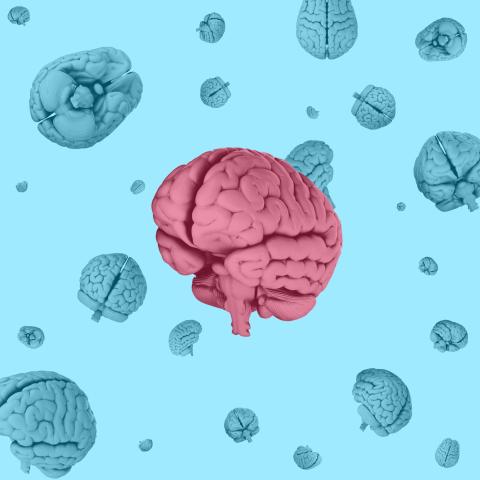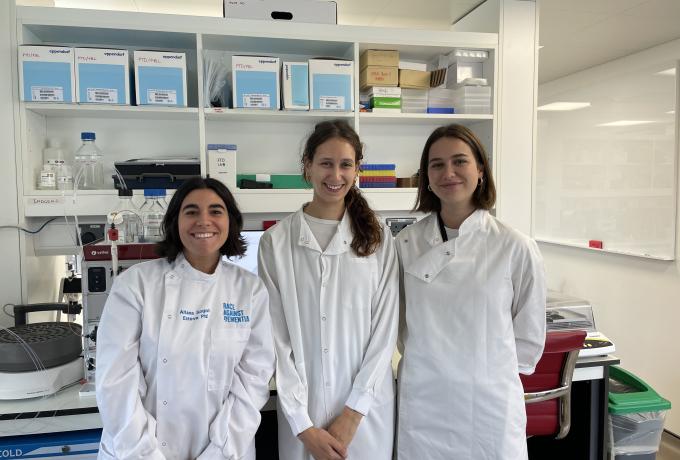Key details
Exploring the utility of synaptic markers in frontotemporal dementia
Frontotemporal dementia (FTD) is a condition affecting the brain that can result in changes in behaviour, language, and/or movement. These symptoms are caused by nerve cells in the brain becoming dysfunctional and dying over the course of the disease. There are different processes causing FTD and there is still a lot to learn about those. These processes can be the loss of connexions between nerve cells (called synapses), the recycling system of the cell (called endolysosomal system) or the defense mechanisms of the brain (neuroinflammation). The complexity of FTD makes it a challenge to diagnose and therefore develop therapies for it.
In the Sogorb-Esteve Lab, the team search for tools called fluid biomarkers that could help improving the accuracy of the diagnosis of FTD. The researchers are developing tools to measure proteins related to these processes in cerebrospinal fluid, but also finding a way to measure them in blood, which is more easily acquired. This involves extracting particles called extracellular vesicles that enter the blood from the brain and using mass spectrometry to measure the level of synaptic proteins inside them.
Beyond providing important insight into the mechanisms of disease, developing such markers will be useful for future trials, potentially indicating if these functions have been restored after treatment.
Latest news



Dr Aitana Sogorb-Esteve
Dr Aitana Sogorb-Esteve PhD is an Emerging Leader at the UK DRI at UCL. Find out more about her career and expertise on her profile page.

Research summary

Fluid biomarkers from cerebrospinal fluid (CSF) or blood could help identify different processes underlying the symptoms of neurodegenerative conditions.
Credit: Shutterstock / Olena Yakobchuk
Biofluid measures for frontotemporal dementia
Frontotemporal dementia (FTD) is a heterogeneous disorder associated with dysfunction and neuronal loss in the frontal and temporal lobes of the brain. Approximately a third of FTD is genetic with the most common causes being mutations in the C9orf72, GRN or MAPT genes. The complexity of the clinical manifestations of FTD, together with the variable underlying pathologies and genetic causes, make this disease very difficult to diagnose.
Fluid biomarkers from cerebrospinal fluid (CSF) or blood could help identify different processes underlying the symptoms in people with FTD, but, so far, the markers used have not been deeply studied or validated. Developing such measures has the potential to improve the diagnostic accuracy in FTD, as well as provide a readout of cellular dysfunction during therapeutic trials.
In the Sogorb-Esteve Lab, the team is identifying synaptic, lysosomal and inflammatory proteins in CSF and blood samples. The researchers aim to isolate these proteins from extracellular vesicles released from neurons and immune cells in the brain, including microglia and astrocytes. They will then identify which of these proteins can be detected in a large fluid biomarker sample from the Genetic FTD Initiative (GENFI), a cohort study of people with pre-symptomatic and symptomatic genetic FTD, with the aim of developing a diagnostic tool. Any biomarkers identified could be used as outcome measures that indicate if cellular function has been restored in clinical trials.
Key publications
Vacancies
Lab members
- Imogen Swift (PhD candidate)
- Katie Thompson (Research assistant)
- Eleanor Crispin (Research Assistant - joint with Prof Henrik Zetterberg)

Collaborators









Lab funders
Thank you to all those who support the Sogorb-Esteve Lab!

